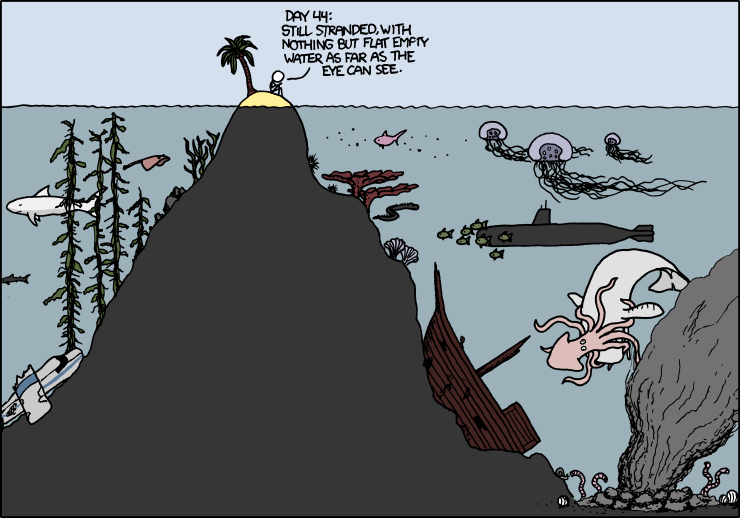I've now mostly caught up from being away for 3 weeks and have gotten over the 12 hour jet lag. So, really, I have no more excuses not to post something. Luckily from me, Deep Sea News had a great post to day on what it takes to be a deep sea biologist. I'm a little afraid that I'm revealing too much about myself, as obviously gone through all of their points to fully embrace the insanity of deep sea biology. Here's #1:
"Love and Pain…Like Sunshine and Rain. Welcome to
Deep-Sea Science. Before you start, you better realize what exactly you
are heading into. Deep-sea science can be both extremely rewarding and
extremely heart breaking. To be a deep-sea scientist is to be one part
scientist, one part explorer, and three parts masochist. The logistical
difficulties and financial requirements of sampling an environment
covered with miles of water will pretty much make every project you want
to do either impossible or close to it. While other graduates students
and scientists in your department drive a truck down to their field
site and take samples till the cows come home, you will be having a
nervous breakdown because of insufficient data. A project that takes
other scientists a weekend and $250 to do will take you three years and
$250,000. So, deep-sea science is not for the faint of heart. However,
if you can manage to get a chance (which likely will not happen), then
you will probably discover something new, a species, a habitat, a
process, or a biological adaptation. Deep-sea science is a young field
compared to many other science disciplines. You will never be at a loss
for questions, because most of the answers are still unknown. Too bad
you won’t be able address all of them. I write this with
tongue-in-cheek of course, but I am serious. This is a tough field and
doing deep-sea science isn’t easy. Think about this for some time
before you move to number 2."
#2 - 11 found here http://deepseanews.com/2009/03/so-you-want-to-be-a-deep-sea-biologist/

No comments:
Post a Comment